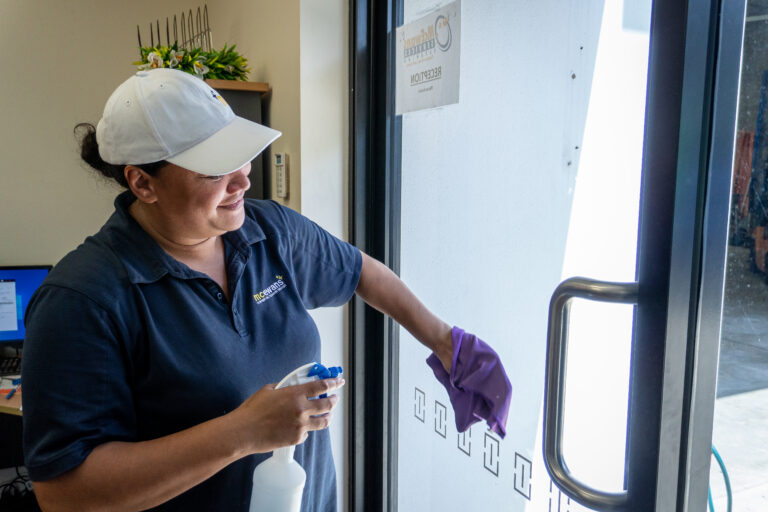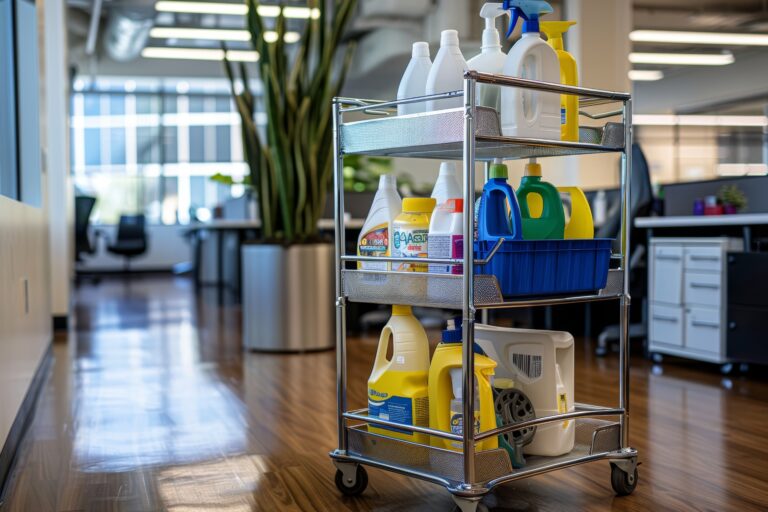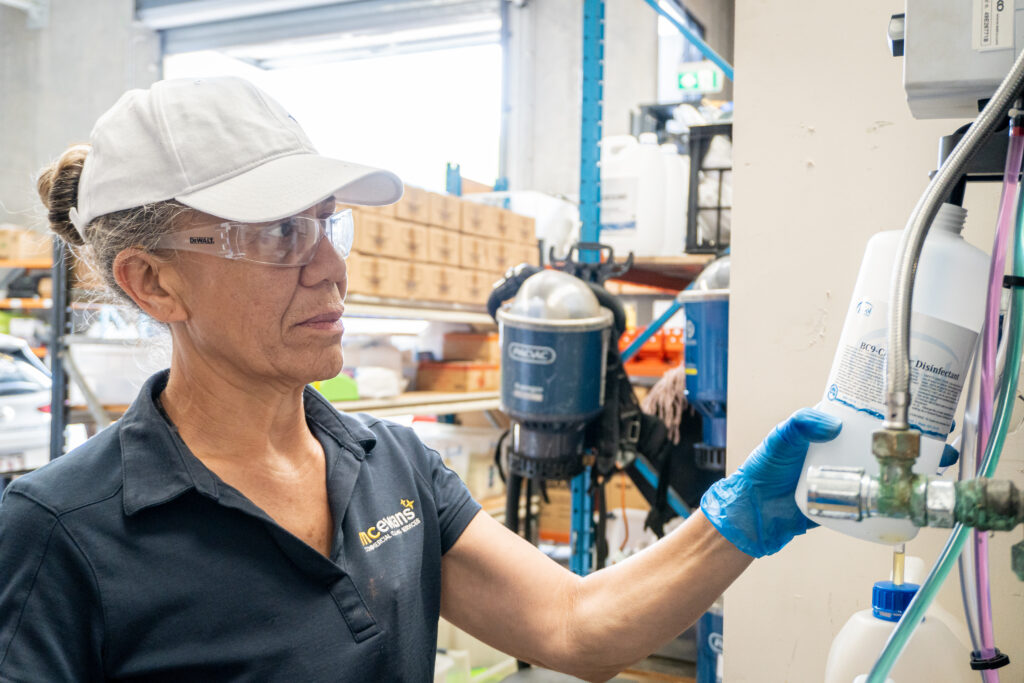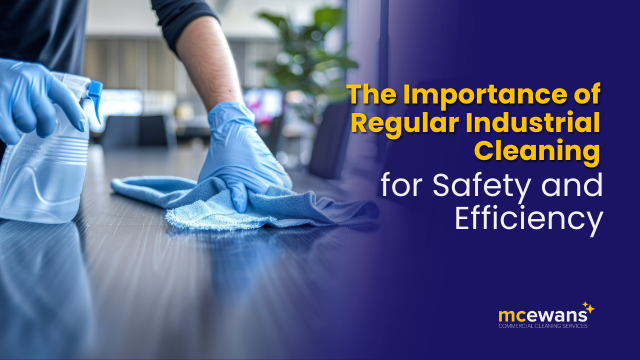For the past ten years, more than 1,850 traumatic injuries in Australian workplaces have already been recorded.

Proactive strategies to prevent workplace accidents and protect employees should be the paramount focus of each organisation. These are the most important practices in safeguarding the well-being of workers to minimise disruptions, and reduce the overall impact on businesses and communities.
One of the most effective yet often overlooked methods to mitigate such risks is regular industrial cleaning. By maintaining a clean and organised work environment, businesses can significantly reduce the likelihood of accidents, ensuring a safer and more productive workplace for all.
Safety Benefits
In industrial environments, the accumulation of dirt, debris, and hazardous materials can lead to a myriad of issues. From safety hazards to operational inefficiencies, the repercussions of neglecting industrial cleaning are far-reaching. Regular industrial cleaning ensures a safe, compliant, and efficient workplace.
Preventing Accidents
Industrial settings are inherently hazardous, with machinery, chemicals, and other potential dangers present. Regular cleaning is crucial in preventing common workplace accidents such as slips, trips, and falls. According to Safe Work Australia, around 3.5% of the working population experienced a work-related injury or illness in 2021-2022. The Work Health and Safety Queensland emphasises that an untidy workplace can cause injuries, particularly resulting from slips and trips, therefore good cleaning practices are essential for all workplaces.
Meeting Safety Standards
Adherence to safety standards is mandatory in industrial operations. The Australian Government, through bodies such as Safe Work Australia, has established rigorous safety guidelines that all workplaces must follow to protect workers from harm. Regular industrial cleaning is a key strategy in meeting these safety standards, as it directly addresses many of the hazards that can lead to accidents and injuries.
Slips, trips and falls cause thousands of preventable injuries each year according to Safe Work Australia. In their report, these are mostly caused by polished, wet or greasy floors, untidy areas, among others.
As part of the WHS duties, businesses must implement safe work procedures and keep the workplace clean. Safe Work Australia emphasises that organisations must ensure these cleaning practices:
- having adequate rubbish and recycling bins
- cleaning schedules in place
- dry floors after cleaning
- don’t have cords on walkway or work area floors.
Efficiency Improvements

A clean and well-maintained industrial environment is not only essential for safety but also plays a critical role in boosting operational efficiency. When workplaces are organised and free from clutter, employees can perform their tasks more effectively, and machinery can operate without the hindrances caused by dust, debris, or contamination.
A clean and well-organised workspace correlates with increased operational efficiency. When a workplace is tidy and organised, employees can focus on their tasks without the distractions or delays caused by disorganised or dirty work areas.
Cluttered and dirty environments can lead to significant downtime as workers spend valuable time searching for tools, navigating through disorganised spaces, or dealing with machinery breakdowns due to dust and grime accumulation.
Machinery and equipment are integral to industrial operations. Regular cleaning and maintenance help prevent breakdowns and extend the lifespan of these assets. For instance, the buildup of dust and debris can cause overheating and malfunctioning of machinery, leading to unplanned downtime.
By implementing a regular cleaning schedule, facilities can minimise these interruptions, ensuring smoother and more efficient operations.
Health Benefits
Maintaining a clean industrial environment also plays a vital role in safeguarding the health and well-being of employees. A workplace free from dust, contaminants, and harmful substances significantly reduces the risk of occupational illnesses and promotes better overall health.
Employee health is a critical component of a productive workplace. When employees are healthy, they are more engaged, focused, and capable of performing their duties efficiently. According to an article published in the ABC News Australia, cleanliness was correlated with employee satisfaction, as confirmed in a study of more than 40,000 respondents.
Regular industrial cleaning helps to eliminate dust, allergens, and harmful substances that can contribute to respiratory issues, allergies, and other health problems. By maintaining a clean environment, businesses not only reduce the spread of illness but also create a more comfortable and conducive work atmosphere, ultimately leading to higher productivity and job satisfaction.
A study revealed that workers in a clean workplace took on average, 24% fewer sick days compared to those in less clean environments. Regular cleaning helps mitigate these health risks by removing contaminants and maintaining a hygienic environment. Cleaner air, fewer allergens, and reduced exposure to harmful substances contribute to a healthier, more productive workforce.
Compliance with Regulations

Compliance with industry-specific regulations is non-negotiable in industrial settings. Various regulatory bodies, including Safe Work Australia, the Environmental Protection Authority (EPA) in each state, and local health departments, enforce strict cleanliness and safety standards. Regular cleaning ensures that facilities remain compliant with these regulations, avoiding potential legal issues and fines.
According to Safe Work Australia, maintaining a clean and orderly workplace is a fundamental requirement under the Work Health and Safety (WHS) Act 2011. This legislation mandates that employers must ensure their work environment is safe and free from health risks as far as reasonably practicable.
Non-compliance can have severe consequences, including hefty fines, legal liabilities, and reputational damage. According to Work Health and Safety Laws in Queensland, businesses may face fines of up to $3 million for non-compliance with health and safety regulations.
Moreover, on top of the fines, repeated non-compliance can lead to increased scrutiny and inspections, further disrupting operations.

More than just a maintenance task, regular industrial cleaning is a strategic investment in safety, efficiency, and employee well-being. By maintaining a clean and compliant facility, industrial businesses can prevent accidents, boost operational efficiency, enhance employee health, and meet regulatory requirements.
Maintaining cleanliness in industrial settings is often viewed as a secondary concern, yet its impact on safety, efficiency, and overall productivity cannot be overstated. For factory managers, operations managers, facility managers, and industrial business owners, understanding the profound benefits of regular industrial cleaning is essential for fostering a safe, healthy, and efficient working environment.
Don’t wait for an accident or regulatory issue to arise. Take proactive steps today to maintain a clean and efficient facility. Contact McEwans Cleaning and experience the benefits of professional industrial cleaning services.
Ready to improve your workplace safety and efficiency? Book our industrial cleaning services now!
Elevate Your Workplace Safety and Efficiency Through Professional Industrial Cleaning
McEwans Cleaning offers comprehensive industrial cleaning services tailored to your needs. Trust our experienced team to keep your facility clean and compliant with safety standards. With our expert services, you can focus on your core operations while we ensure a spotless, safe, and efficient workplace.
Ensure your facility is safe and efficient. Contact McEwans Cleaning today for a free consultation!


